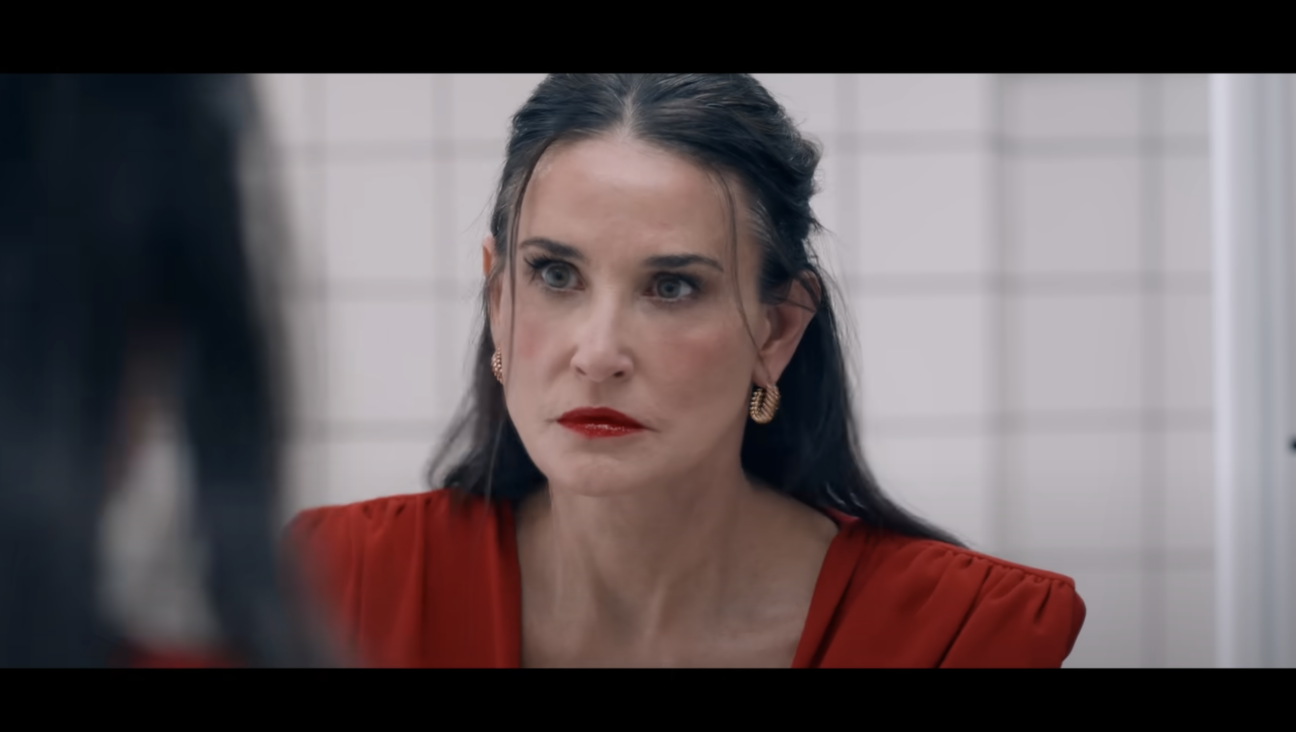Why I am grateful to Ady Barkan — a man who always told it straight
The activist did not go quietly. In fact, his voice is still being heard.
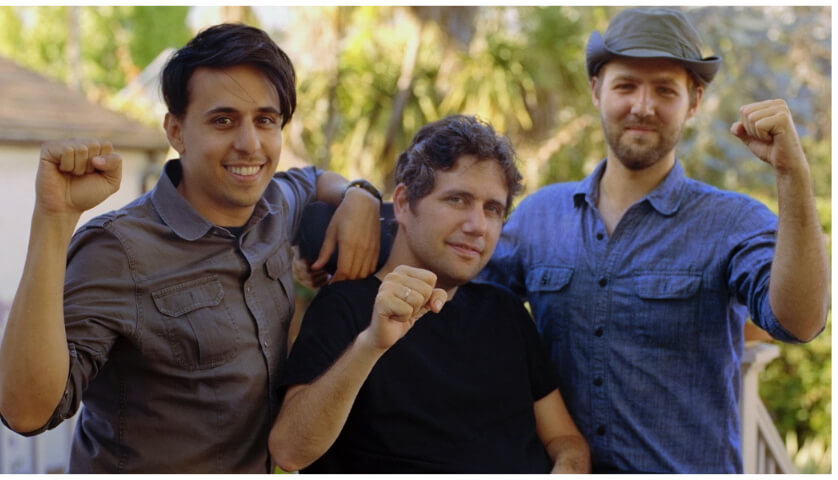
Graphic by Angelie Zaslavsky
“If you want to make a movie about me, you might start by learning to pronounce my name right.” Ady Barkan pulled no punches, and fair enough — I had asked him to star in a documentary so soon after we met that I hadn’t yet learned the correct pronunciation. “Ah-dee, like you’re at the dentist,” he grinned. Life is too short not to say it straight; that was the first of many lessons from him.
Our story goes like this. In early 2018, after a decade of making films and ads for progressive causes, I was introduced to Liz Jaff, a political consultant. She too had just met Ady and was already reorganizing her life around him. “So I was sitting next to this guy on an airplane and I shot this incredible clip of him confronting a senator, Jeff Flake, about healthcare,” she said. “We’re going to start a campaign around it called Be a Hero, and we need a launch video.”
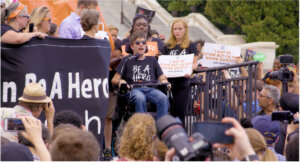
I flew out to Santa Barbara to film Ady for what was supposed to be a short promo, and over the course of the two-hour interview every member of the production crew alternated between laughter and tears as he told us his story and its most poignant irony. He had spent his life railing against injustice as loudly as he could, and while he had already made waves across so many issues, it was only when he lost his voice to ALS that he was truly heard on a national stage.
That night, as we smoked the first of many joints together (for strictly medicinal purposes), Ady told me that he was thinking of taking the show on the road, bringing other sick people to confront their representatives who vote against healthcare, just like he did to Flake. “We’re going to f–k these politicians up so much; it’s going to be great” he smiled, using his already-slowing speech to perfect comedic effect. I loved this guy. Soon enough I found my summer plans canceled and I was living in an RV traveling across the country, documenting what would 3 years later become Not Going Quietly.
What was it about Ady that made everyone drop everything for him and the causes he championed? It’s only now that I fully understand: Ady’s superpower was to help people find meaning in their own lives, and in their own stories. On tour, he formed deep connections with Americans across every spectrum, from Republican retirees, to immigrant caregivers, to the most powerful elected officials in the country. Through piercing humor and a few carefully chosen words, Ady startled people in the best way possible — his sense of purpose was so profound that it forced you to find your own.
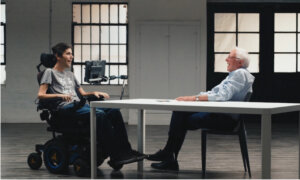
That was his political organizing tactic, but it often had what I saw as a spiritual effect on the people he crossed paths with. At a rally against Supreme Court nominee Brett Kavanaugh on the lawn of the capitol, two women he just met held his hands as they wept, united in shared pain and resolve. It was an indelible moment with the capitol in the background like a steeple, and Ady sacrificing his body on the altar of our fragile democracy.
Leading up to the presidential election of 2020, I watched through the camera lens as he interviewed Bernie Sanders and Joe Biden with deeply personal questions about their policy positions, and saw them shaken from their traditional stump lines, forced to turn inward for their answers. Merely looking at Ady in action was to ask oneself the question, how much time do I have left, and am I spending it the right way? Or, as Ady asked in one of his final speeches before he fully lost his natural voice “I am willing to give my last breaths — what are you willing to give?”
Ady was demanding — with fellow activists, with presidential candidates — and he was a tough critic. Even his oldest friends told me about his blunt reviews from their high school newspaper days. And sure enough, when we sent him a rough cut of the film for his feedback, he had a long list of notes, many of which were characteristically incisive, and we addressed in the edit room, but others we did not. So when we finally held our long-awaiting theatrical premiere in Los Angeles, with a full house and Ady in attendance to see the final cut, I was nervous.
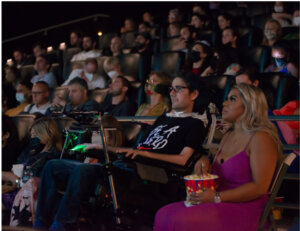
Instead of watching the movie I watched his face, lit up in the dark theater by the glow of his eye-tracking communication device, to see his reaction to each scene. But as the credits rolled, he looked over and gave me his trademark smirk and eyebrow raise, the same smile he gave me the day I met him when he could still talk. And then he rolled on stage and the audience gave him a huge standing ovation, in a moment that will remain one of the highlights of my life, to know that so many others hear his voice, and that it will continue to reverberate long after his last breath.
Last year I had the honor to be in conversation with Ady and the legendary disability rights activist Judith Heumann, only a few months before she passed away. When she asked Ady why he agreed to do the film, he responded, “I want my children to know who I am, and how their existence motivated me to fight for a better world. And I want viewers to know that I found great joy and meaning in the struggle, and that sense of purpose is available to everyone who becomes part of the fight for a more just society.” Joy and meaning, what better gifts could Ady (and Judy, and Malcolm, and Martin, and Rosa, and Cesar, and so on) leave us with?
Ady had a gratitude writing practice that helped him persevere through the darkness of ALS, and that is another of his lessons that I will try to carry on.
I am grateful. To his wife Rachael. To his children Carl and Willow. To the Be a Hero movement. To Ady.
For showing me what being a great father looks like.
For proving that our stories have power.
For always telling it straight.
And for giving me and countless others a sense of purpose, that even though he is gone, he continues to offer all of us.





